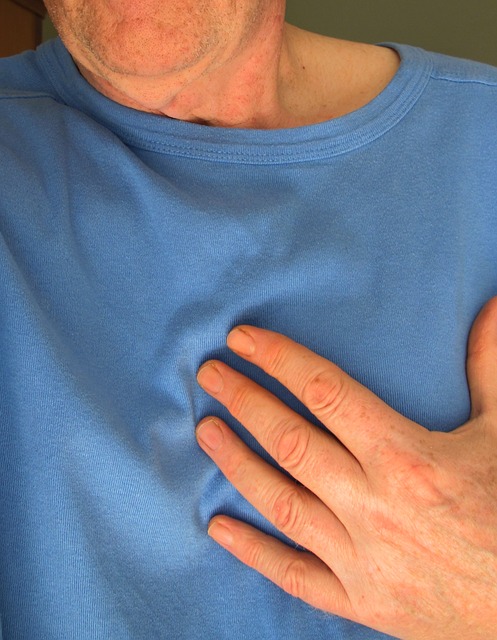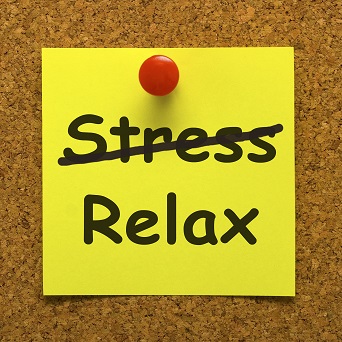Anger and heart disease are connected.
We all get angry from time to time, however calm and composed we think we are.
Be it driving in heavy traffic in India and being cut off by an irresponsible driver who decided that the red light actually means ‘go’ to a person in the office who annoys you all the time, anger can take over a person’s ability to make rational decisions.
Anger has caused many good people to do bad things, landing them in trouble.
Heart disease bears a close link to anger management issues, and studies have shown that anger can increase the risk of cardiovascular disease.
That’s correct – anger and heart disease are connected.
In a study conducted in Finland looking at men who already had existing heart disease, high rates of hostility and anger were linked to and increased chance of dying from heart problems. Similar effects have been seen with those who have perfectly healthy hearts.
The effects of getting angry often is not just limited to the way the heart muscle functions.
1. Anger can reduce the strength with which the heart contracts
2. Anger can increase heart rate
3. Anger can increase blood pressure
4. Anger increases the stickiness of platelets
How Angry Do You Get?
The Harvard Health website has a great way of scoring how angry you might actually be.
Below is the anger rating scale.
Level 1 – Calm
Level 2 – Busy but not hassled
Level 3 – Mildly angry, irritated, and hassled, but it does not show
Level 4 – Moderately angry—so hassled it shows in your voice
Level 5 – Very angry, body tense, clenching fists or teeth
Level 6 – Furious, almost out of control, very angry, pounding table, slamming door
Level 7 – Enraged! Lost control, throwing objects, hurting yourself or others
The Anger And Heart Disease Link
In the recent years, there has been increasing evidence published suggesting a link between anger and heart disease.
Interestingly, being angry seems to be embedded in our genes. Scientists call it ‘trait anger’.
People with high trait anger have rage more often, with their anger spells lasting a lot longer than normal. On the other hand, those with low trait anger also get angry, but to a milder level.
Trait anger has been linked to heart disease risk factors. You will know that high cholesterol, high blood pressure, diabetes, smoking etc are all risk factors that increase your chance of developing a heart attack.

Studies have found that those with high trait anger have a higher level of bad cholesterol i.e. LDL and triglycerides in their blood stream. This known to increase the risk of heart disease.
Similarly, trait anger has been linked to high blood pressure. Those with high trait anger are at a greater risk of developing high blood pressure.
Being angry once in a while is okay. Expressing your anger is a healthy way to express emotion at times when you are unhappy.
In fact, some studies have divided anger into ‘constructive’ and ‘destructive anger.
Constructive anger is one that has a ‘healing’ property. By expressing constructive anger, it can help an individual relax and calm them down. In simple terms, it is getting things ‘off your chest’.
Destructive anger is a lot more worrying. It involves expressing some form of aggression towards another individual – either verbal or physical.
Constructive anger has been found to help lower the risk of heart disease in men (the study only looked at men).
Timing Matters
Using the scoring system I described earlier in the table above, a group of researchers found that people who experienced anger of a greater severity were 8.5 times more likely to have a heart attack within 2 hours.
2 hours!
While this only looked at a small number of subjects, the results are concerning.
Other studies have found that those who had more intense anger had a worse heart attack.
Anger + Exercise = Heart Attack
A study conducted in Canada found that those people who exercised while they were angry had a higher chance of developing a heart attack.
It does not matter if they had high blood pressure or any other risk factors. The effect of anger was independent of all this.
The heart attack occurs because the exercise and feeling of being emotionally upset increases the blood pressure. At the same time, it also reduces the amount of blood that goes to the heart muscle. This can lead to a heart attack.
If you are one who exercises when stressed to relieve the tension, there should be no reason why you should not.
However, it is advised not to try to let off steam by doing vigorous or strenuous exercise. A simple walk might suffice instead of a sprint to calm you down.
Alternately, you could try yoga, which is great for your heart.
Managing Your Anger
If you are someone who realises that you have anger issues, it is time to take action.
At least for the sake of your heart.
Remember that getting angry a little once in a while is healthy.
However, getting furious and expressing a great deal of rage time and again is worrying.

The best way to manage anger is counseling. There are many counselors who can guide you on how to cope with your anger through simple steps at home (or at work).
Always think before you speak when you are angry. You could irreparably damage a relationship by saying what you do not mean when you are angry.
Try and get some time for yourself every day. It will help relax your mind and take you away from stressful situations.
These simple solutions should help you take charge of your anger issues and reduce your chance of having a heart attack.
Just relax. Take a deep breath. Count to 10.
Closing Remarks
Anger and heart disease are closely linked. Stay calm and live longer!
- Understanding Iron Deficiency Anemia: A Guide for Patients - May 31, 2025
- CT Coronary Calcium Score: A Guide for Patients - January 7, 2024
- Gastric Antral Vascular Ectasia (GAVE) – Causes, Diagnosis, and Treatment - August 5, 2023

Oh my Gosh! I must take printouts of this article and distribute at traffic signals ;P 😀
Good information. Known to be a good cardiologist in Jayanagar particularly. I am delighted to consult him to get good advice.
His father also reputed cardio, now relaxed from his busy practice, sparingly practice, I am referred to him for wide consultation by reputed professional friends.